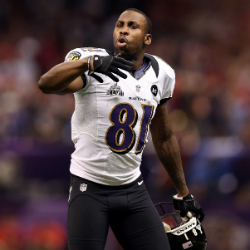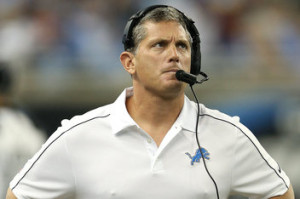The opening bell has rung, and free agency has once again started off with a bang! Some teams have been highly active, while others have yet to make any noteworthy actions. Many transactions have taken place since free agency started on Tuesday, and with those moves many questions have been generated. Let me answer a few of those questions below.
 QUESTION: How could New England let their most productive receiver just walk away?
QUESTION: How could New England let their most productive receiver just walk away?
Wes Welker has been a dynamic and prolific wide receiver for the Patriots over the past 6 seasons of his career. He has been extremely productive in their offensive system with over 100 receptions and 1,000 receiving yards in 5 of 6 seasons. That kind of consistent production is unmatched in today’s game as players get hurt, change teams, and adjust to new coaching schemes. Not to mention the fact that the receiver position is one that players rise and fall in statistical success QUICKLY. This was not the case for Welker, yet next season he will once again adorn new colors in a new home city.
Back in 2006, Welker was in a similar situation as a free agent for the Miami Dolphins. He was a restricted free agent, meaning that other teams could offer him a contract, but the Dolphins would have the right to match the offer or receive draft pick compensation. The Dolphins tendered Welker at a level in which they would receive a 2nd round pick as compensation, and that seemed appropriate given that Welker was coming off his only productive season in 3 years with a mediocre 687 receiving yards and only one touchdown.
But any amount of study of Wes Welker showed that he was worthy of a 2nd round tender, if not more! I distinctly remember studying game tape of him as we prepared for free agency, and I was nothing short of impressed. He was feisty, tough, aggressive and motivated. It was obvious in his play. He was selfless and willing to take a hit over the middle. He had the hands, burst and route running ability. But he was small, had average long speed and was relatively unproven. Most teams couldn’t justify giving him a multi-year contract and relinquishing a second round pick for a player that was not the complete package. New England was in the minority, and rather than go through the restricted free agent signing process, they simply traded for Welker, giving up a 7th round pick along with the 2nd round pick that would have been mandatory in signing a restricted free agent.
New England saw what I saw, no doubt, and they were willing to role the dice. What was the difference? New England had a plan for Welker. They had a defined role for him in their scheme, and they had a need for such a wide receiver. They knew they were going to use him in the slot, maximizing his touches by moving him around. They planned to send him on routes that would utilize his route running ability and exploit his production in the middle of the field. Some receivers are big and tall: They are perfect for jump balls. Some receivers have long speed: They are perfect to send down the field on vertical routes. Some receivers are not good to send over the middle, because they fear getting hit, becoming injured, or not being able to run with the ball after the catch: These types would not work as a slot receiver. Welker was different.
Welker fell into none of those categories: He was not tall, he was not fast, and he was not scared of running across the middle for small five or 10 yard gains. Welker knew his skills, but he also knew his weaknesses. The Patriots knew them as well. The difference was that the Patriots knew how to use him. The bonus is that both Welker and the Patriots knew that Welker would constantly put forth maximum effort to improve his weaknesses.
So after six seasons, why would the Patriots let him leave? Welker’s salary demands and salary cap impact had become larger than the Patriots wanted to pay. New England does not like to spend top dollar on players, knowing that spending too much on too many players handicaps the ability to improve the rest of the team, along with salary cap problems down the road. Second, Welker is already 31, and any receiver in his thirties is past his prime in the NFL. Welker isn’t going to develop into a better receiver, get any faster or become less prone to injury. Lastly, New England’s offensive system is built around spreading the ball around. It is not uncommon to see Tom Brady have eight different targets in a game. Welker was just one of many potential targets; just one piece of the puzzle. His success did not dictate the Patriots’ success. Welker just happened to be Brady’s favorite and most reliable target.
ANSWER:
New England believed the cost for his age was too high, and if he wouldn’t agree to a lower figure, they would let him walk and just reload with somebody else. The Patriots did not want to pay an aging veteran top dollar.
So Denver signed him to a contract with the money he was seeking, deeming the cap charge worth it. Denver is building to win now. Peyton Manning will not be around much longer, and Denver also realizes how to use Welker while he is still productive. Last season Brandon Stokely came out of retirement to play in the slot for the Broncos, and he was unexpectedly successful! This occurred because Denver and Manning knew how to use him. Welker will take over that role this season, and Denver is going broke to win it all with him.
 QUESTION: How is a Super Bowl winning receiver only worth a 6th round pick?
QUESTION: How is a Super Bowl winning receiver only worth a 6th round pick?
The Baltimore Ravens rolled the dice last off-season not re-signing quarterback Joe Flacco to a contract extension. In some regards, they wanted him to prove he was worth a top-dollar contract. He did just that this year, leading the Ravens to a Super Bowl victory. Accordingly, both Flacco and the Ravens knew a big contract was coming. The Ravens signed him to that $120.6 million contract this off-season, and his cap charge, along with high cap figures for numerous other top players put the Ravens in a bit of a salary cap crunch.
With little cap space for 2013 and higher contractual demands of Ravens players due to the success of 2012, the Ravens had to find ways to create space. They asked players to take pay cuts, chose to release some players, and decided to not re-sign others. Wide receiver Anquan Boldin was one such player. They asked him to reduce his 2013 salary from $6 million to $4 million. Boldin balked, believing that he could easily receive an offer of $6 million in salary on the open market if he was released. The Ravens didn’t want to release him, but they also knew they couldn’t afford his salary cap charge. Despite his age, Boldin’s steadfast stance paid off.
Every team in the NFL knew that the Ravens would either have to release or trade Boldin due to Boldin’s unwillingness to take a pay cut. As I have detailed before, this shifted leverage away from the Ravens. So despite Boldin’s talent and success, other teams knew that they could send trade offers containing minimal compensation. After all, Baltimore’s only other choice would be to release Boldin and receive no compensation. Some teams would not be willing or able to afford Boldin’s $6 million cap charge, but the 49ers were one team that was interested, despite the $6 million figure.
Draft choices are often traded for veteran players, but typically 5th, 6th and 7th round draft choices are not expected to make the team. They are more likely to be “project players” that a team will take a risk on to see if they develop. These players often spend a whole season on the practice squad. Boldin is surely better than a practice squad player, but why he did he only garner a 6th round pick in return for his services?
ANSWER:
Once they determined they couldn’t afford his $6 million cap charge, the Ravens had to get rid of Boldin. Everyone knew it, and the 49ers offered the best compensation to the Ravens: a 6th round pick.
 QUESTION: If a team’s obvious need is defense, why would it be signing players on offense early in free agency?
QUESTION: If a team’s obvious need is defense, why would it be signing players on offense early in free agency?
The Detroit Lions had another forgettable year on defense, ranking 27th out of the 32 teams in points allowed. Their defense has been a sore spot over the past few years, so it only makes sense that they would focus on defense in free agency, right?
The Lions answered that question with a resounding “NO” as their first signing was running back Reggie Bush this past Wednesday. The Lions view Bush as the dynamic speed running back that Jahvid Best was suppose to be for them. Bush will run less between the tackles and will be utilized in space, while the team will use Mikel Leshoure to pound the ball running between the tackles. Together, the Lions view them as a formidable tandem.
The Lions had minimal cap space, and after re-signing a number of their own players, they knew they couldn’t afford to make a splash signing a premier defensive player. A top-notch player would have cost too much in cap space this year and/or in future seasons. So why target a running back instead of a defensive player?
ANSWER:
Detroit wanted to add top tier talent in free agency, not one or two average starters. While no elite defensive player fit into their salary cap budget, they did find a perceived ‘cheap’ home run on offense! They signed Bush to a 4-year $16 million deal with what is likely only about a $2.5 million 2013 cap charge. And do not fret Lions fans: They have also added 2 projected defensive starters.
Next question?
Comment below on what you want Joe to answer next. Make sure to like our social media pages via our Facebook page and Twitter @SportsNetworker


